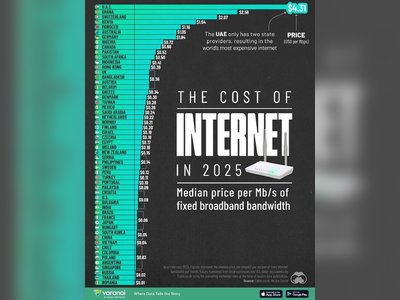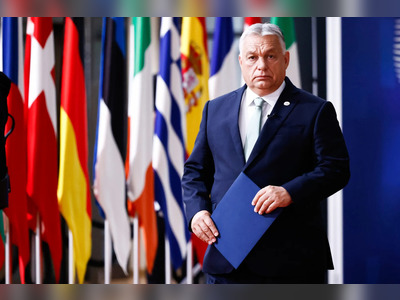
Hungarian Prime Minister Discusses External Influences on the Economy
Viktor Orbán addresses the impact of geopolitical events on Hungary’s economic performance amid rising inflation and recession concerns.
In a recent radio interview, Hungarian Prime Minister Viktor Orbán articulated his views on the influence of external factors on the Hungarian economy, surprising some analysts with his perspective.
Orbán criticized past approaches by previous governments, suggesting that the communists and liberals have historically used global economic trends as easy excuses for domestic economic difficulties.
He emphasized the importance of focusing on domestic solutions instead of attributing economic challenges to outside forces.
Orbán's comments come as Hungary grapples with economic downturns that began in 2022, leading to deteriorating living standards for its citizens.
He maintained that if the economy performs well, it reflects positively on government policies, whereas any setbacks can typically be attributed to external sources, such as Brussels, Germany, or Ukraine.
The ongoing war in Ukraine has been cited by the government as a driving force behind economic challenges, with Orbán previously stating that the resolution of the conflict is essential for achieving economic objectives in Hungary.
He indicated that the economic troubles faced by Hungary are a direct result of the war, suggesting that recovery plans are contingent on the cessation of hostilities.
The government has also attributed the historically high inflation rates to external factors.
Initially termed 'war inflation', the government argued that economic repercussions from the Ukraine conflict were exacerbating inflation, which started to rise in late 2021, prior to the war.
Orbán implemented price caps on essential food items and fuel ahead of the war, indicating that inflation had already begun its upward trajectory.
As inflation surged, government spokespersons began framing it as 'sanction inflation', arguing that European sanctions against Russia are responsible for rising prices in Hungary.
Orbán has claimed that lifting these sanctions could drastically reduce inflation levels.
In a parliamentary session, he characterized the sanctions as a sort of virus afflicting the economy, claiming that the root causes of inflation lay beyond Hungary’s borders.
Despite these assertions, Hungary's inflation rate, 17.5% in July 2023, significantly exceeded the EU average of 6.1%.
The government has struggled to provide a clear explanation for the disparity in inflation rates compared to neighboring countries, further complicating their narrative about external influences.
Germany's economic performance has become another focal point for Hungarian officials, including Economy Minister Márton Nagy, who attributed lackluster Hungarian exports to a struggling German economy.
In 2023, around 26.3% of Hungarian exports were directed to Germany, highlighting the dependence of Hungary's economic health on its western neighbor.
Furthermore, Orbán has invoked potential favorable external influences, particularly looking ahead to the impact of Donald Trump's possible return to the U.S. presidency.
Preceding the outcome of the 2024 elections, government officials have expressed hope that a Trump victory could stabilize the economic situation in Hungary, tying budgetary prospects to developments in U.S. political affairs.
Orbán posited that peace resulting from such a victory could eventually lead to greater economic investment in Hungary.
Throughout various discussions, Orbán has suggested that the broader economic landscape is influenced more by external factors than by domestic policy decisions, raising questions about the degree of agency his government has over the national economy.
These statements reveal an ongoing tension within the government's narrative regarding accountability and the influence of global economics.
Orbán criticized past approaches by previous governments, suggesting that the communists and liberals have historically used global economic trends as easy excuses for domestic economic difficulties.
He emphasized the importance of focusing on domestic solutions instead of attributing economic challenges to outside forces.
Orbán's comments come as Hungary grapples with economic downturns that began in 2022, leading to deteriorating living standards for its citizens.
He maintained that if the economy performs well, it reflects positively on government policies, whereas any setbacks can typically be attributed to external sources, such as Brussels, Germany, or Ukraine.
The ongoing war in Ukraine has been cited by the government as a driving force behind economic challenges, with Orbán previously stating that the resolution of the conflict is essential for achieving economic objectives in Hungary.
He indicated that the economic troubles faced by Hungary are a direct result of the war, suggesting that recovery plans are contingent on the cessation of hostilities.
The government has also attributed the historically high inflation rates to external factors.
Initially termed 'war inflation', the government argued that economic repercussions from the Ukraine conflict were exacerbating inflation, which started to rise in late 2021, prior to the war.
Orbán implemented price caps on essential food items and fuel ahead of the war, indicating that inflation had already begun its upward trajectory.
As inflation surged, government spokespersons began framing it as 'sanction inflation', arguing that European sanctions against Russia are responsible for rising prices in Hungary.
Orbán has claimed that lifting these sanctions could drastically reduce inflation levels.
In a parliamentary session, he characterized the sanctions as a sort of virus afflicting the economy, claiming that the root causes of inflation lay beyond Hungary’s borders.
Despite these assertions, Hungary's inflation rate, 17.5% in July 2023, significantly exceeded the EU average of 6.1%.
The government has struggled to provide a clear explanation for the disparity in inflation rates compared to neighboring countries, further complicating their narrative about external influences.
Germany's economic performance has become another focal point for Hungarian officials, including Economy Minister Márton Nagy, who attributed lackluster Hungarian exports to a struggling German economy.
In 2023, around 26.3% of Hungarian exports were directed to Germany, highlighting the dependence of Hungary's economic health on its western neighbor.
Furthermore, Orbán has invoked potential favorable external influences, particularly looking ahead to the impact of Donald Trump's possible return to the U.S. presidency.
Preceding the outcome of the 2024 elections, government officials have expressed hope that a Trump victory could stabilize the economic situation in Hungary, tying budgetary prospects to developments in U.S. political affairs.
Orbán posited that peace resulting from such a victory could eventually lead to greater economic investment in Hungary.
Throughout various discussions, Orbán has suggested that the broader economic landscape is influenced more by external factors than by domestic policy decisions, raising questions about the degree of agency his government has over the national economy.
These statements reveal an ongoing tension within the government's narrative regarding accountability and the influence of global economics.
AI Disclaimer: An advanced artificial intelligence (AI) system generated the content of this page on its own. This innovative technology conducts extensive research from a variety of reliable sources, performs rigorous fact-checking and verification, cleans up and balances biased or manipulated content, and presents a minimal factual summary that is just enough yet essential for you to function as an informed and educated citizen. Please keep in mind, however, that this system is an evolving technology, and as a result, the article may contain accidental inaccuracies or errors. We urge you to help us improve our site by reporting any inaccuracies you find using the "Contact Us" link at the bottom of this page. Your helpful feedback helps us improve our system and deliver more precise content. When you find an article of interest here, please look for the full and extensive coverage of this topic in traditional news sources, as they are written by professional journalists that we try to support, not replace. We appreciate your understanding and assistance.











